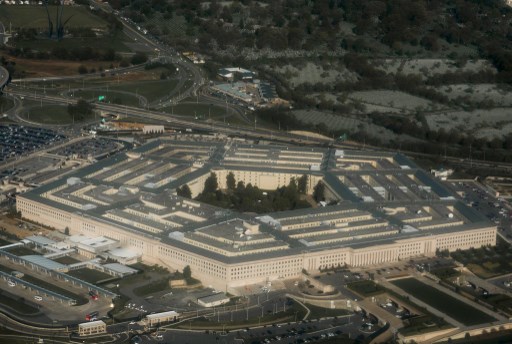
by W.G. Dunlop
Agence France Presse
WASHINGTON, United States (AFP) — The US military plans to cancel $300 million in aid to Pakistan due to Islamabad’s lack of “decisive actions” in support of American strategy in the region, the Pentagon said Saturday.
The US has been pushing Pakistan to crack down on militant safe havens in the country, and announced a freeze on aid at the beginning of the year that an official said could be worth almost $2 billion.
The Defense Department has sought to cut aid by $300 million “due to a lack of Pakistani decisive actions in support of the South Asia Strategy,” Lieutenant Colonel Kone Faulkner said in an email to AFP.
“We continue to press Pakistan to indiscriminately target all terrorist groups,” Faulkner said, adding that the latest aid cut request was pending Congressional approval.
The announcement came days before US Secretary of State Mike Pompeo is scheduled to visit Islamabad to meet new Prime Minister Imran Khan.
Pakistan has fought fierce campaigns against homegrown militant groups, and says it has lost thousands of lives and spent billions of dollars in its long war on extremism.
But US officials accuse Islamabad of ignoring or even collaborating with groups, which attack Afghanistan from safe havens along the border between the two countries.
The White House believes that Pakistan’s Inter-Services Intelligence agency and other military bodies have long helped fund and arm the Taliban for ideological reasons, but also to counter rising Indian influence in Afghanistan.
It also believes that a Pakistani crackdown could be pivotal in deciding the outcome of the long-running war in Afghanistan.
– ‘ No more!’ –
US frustration has boiled over before: President Donald Trump’s predecessor Barack Obama authorized drone strikes on Pakistani safe havens and sent US commandos to kill jihadist kingpin Osama bin Laden in his Abbottabad hideout.
But Trump’s aggressive language has especially angered Pakistani officials.
“The United States has foolishly given Pakistan more than 33 billion dollars in aid over the last 15 years, and they have given us nothing but lies & deceit, thinking of our leaders as fools,” Trump wrote on Twitter at the beginning of the year.
“They give safe haven to the terrorists we hunt in Afghanistan, with little help. No more!”
Pakistani leaders disputed the $33 billion figure, insisting that around half of the money relates to reimbursements, and the prime minister’s office accused Trump of ignoring the great sacrifices the country has made to fight extremism.
In March, a senior US official said that Pakistan has “done the bare minimum to appear responsive to our requests,” and concerns over a lack of action by Islamabad against militant groups still persist.
– Loss of US influence –
The announcement came weeks after Pakistan’s new Prime Minister Imran Khan took office amid concerns he would remain tolerant of terror groups including the Taliban and the notorious Haqqani network.
Khan has repeatedly blamed Pakistan’s participation in the US-led anti-terror campaign for the surge in terrorism on home soil over the last decade and has vowed to rebalance Islamabad’s relationship with Washington.
He has also shown a willingness to hold talks with militant groups and sought support from religious hardliners in the run-up to elections last July — moves that prompted critics to christen him “Taliban Khan”.
Some analysts warn there may be no real way to pressure Islamabad and say a suspension in aid could see the US lose crucial influence over Pakistan which will instead look to other countries for support, particularly its longtime ally China.
Despite the provocations, the US does not want to completely rupture its relationship with Pakistan, where anti-American sentiment already runs high.
Washington’s footprint in Afghanistan is much smaller than it was at the height of the war, but it needs access to Pakistan’s supply lines and airspace.
Pakistan is still believed to have the strongest influence over the Taliban, making its cooperation necessary for peace talks.
© Agence France-Presse








